I would like to present something special to you all. Now, you know I am always wonderful to you. Let me ask you… Have you taken the time to read the new bestseller by Ellen Mae Franklin? No? Well… Here’s a whole excerpt from “The Unseen Promise” for you to devour…
Now don’t say I never give you anything! Enjoy!
A spitting gift
Roedanth rocked on the back legs of his chair while inside the palm of his right hand spun a stormy twister.
“Stop that!” spat Knat.
He looked sideways, afraid. Lately, fear was the only thing he felt. It kept him upright and breathing. Fear for breakfast, lunch and dinner. The friendship with Roedanth forced upon him by Kahlu terrified him, for it was tenuous at best. Kahlu had made sure of that. The Fire Sprite’s death had cemented his fate. Silence for obedience. “You will, if you value your hide, befriend this boy, Knat. Watch him, for I want to know his every word, his every step.”
He was in a bucket of trouble and from where he stood the lip of the pail was far from reach.
“You’re a fool, Knat.” Roedanth’s voice broke the young man’s maudlin thoughts.
Knat didn’t offer up a reply. What for? It would have only earned him another snipe. He wondered, not for the first time, if the twisting of Roedanth’s lips were a sneer instead of a smile.
“If you’re caught tampering with stuff you shouldn’t know, it will only bring attention. They’ll take measures, and if that happens then…” Knat’s words were wasted on the back of Roedanth’s head.
Roedanth eyes were fixed on the door at the end of the room. The twister was all but forgotten. It disappeared in a swirl of colours.
“Is it Kahlu? Have we been caught?” whispered the youth, his voice tremouring slightly. It was this way whenever he was forced to speak the Mage’s name.
“You’re pathetic!” pressed his companion.
Knat fell into a sullen silence, dropping his eyes to his lap and the trembling hands it hid. Roedanth slipped to the door and pressed an ear to the wood.
“They’re out there! Come on, I want to see.”
Knat refused to meet his eyes. “I don’t want to get into trouble.”
“There’s no trouble out there, my friend,” he said with a laugh. “Just opportunities.” And like a cavalier thief, Roedanth crept from the room.
Down the passage they snuck, and all the while Knat shivered. Creeping and spying was the work of his master, not his. Still, he slunk along behind the boy, watching and listening. A dangerous light filled Roedanth’s dark eyes. He chuckled low and cruel. The bucket of trouble was full to the brim now and no matter how much Knat foundered about it still felt as though he was drowning.
He caught sight of Mumbunda’s stiff back anddark bun as she turned a corner. He grabbed at the smooth wall and stumbled, hoping more than anything to twist an ankle or to slip and crack his head on the floor. At least then he would have a plausible excuse to stop this lunacy.
Roedanth got to the same corner and peered about. The way forward offered them two choices: another passage and a staircase. The stairwell led to the Mage’s quarters. Forbidden without invitation, to enter would be erroneous. Knat prayed that Roedanth had more sense.
There was no luck in it for Knat. Roedanth flashed his companion a sneer – or was it a smile? Then, as bold as brass, he walked down the staircase. Knat had no choice, so he glumly followed.
“We shouldn’t be here,” he whispered. Every step jangled his nerves. He looked over his shoulder and then down into the forbidden abyss.
Roedanth declined to answerand Knat followed on. Reaching the last step, the boys found themselves in a shadow, concealed for the moment from the occupants of the room. Soft seating and low tables sat neatly on brightly woven rugs. Mumbunda and Litila stood next to the ornate stands holding clay jugs and cups.
Knat’s nerves had the better of him, and he was just about to let out a whimper when Roedanth’s hand grabbed his shoulder. “Don’t make a sound, or you’ll give us both away and you know there’ll be no saving grace if that happens, ’cause I swear, if they don’t skin your skinny carcass, I will.”
Roedanth’s voice was calm; Knat nodded his head and began a silent count. He swore to himself that he would talk to Rani, tell her everything and if he was given the chance, he would throw himself on the High Councilor’s mercy. Perhaps it wasn’t too late to be saved after all.
***
Mumbunda poured herself a drink; cool elderberry wine was a favourite.“My informants have returned with some very disturbing news. They suggest that the Murrdocks are telling us the truth. They report of unrest across the Murkyn River; it’s not reliable for their border is closed to anyone not Murrdock so it’s the best I can do at such short notice.”
Roedanth’s eyes widened in delight, but Knat sagged against the staircase wall. He was a fool to have followed such a dare. Footsteps from the top of the stairs startled the spying pair, and the sharp clicking of hard nails sounded loud in Roedanth’s ears.
Knat swallowed, fearing he would choke on his own spit. As the footfalls neared, the familiar throb Roedanth had learnt to trust thrummed in time with the approaching steps. He welcomed the feel of its sickening ache. Turning, he caught sight of the two advancing Murrdocks.
“We’d better go,” hissed Knat. “If they find us,” and he nodded towards the female Mage.
“We’ll go when I am good and ready.” Roedanth’s insolence only heightened Knat’s fear.
It was all too much; Kahlu could do his own spying. Knat slid silently back up the stairs, wishing the shadows were deeper. He prayed that his heart wouldn’t give way until he had least reached the safety of his own room. Head down, he wanted to be forgotten; Knat turned his face to the wall.
Guventher and Pec stopped.
Defiant, Roedanth remained on his step, glaring at the Murrdocks. Drakite’s spike jangled and moved in a little tighter, the agony flaring. Still he smiled, slick as sweat. Guventher flicked his tongue at the lad, gesticulating, provoking. The smile on Roedanth’s face deepened. A clawed hand reached for a sword, his intention clear.
Pec touched the shoulder of his warrior companion, a reminder to be still. The Prince of Murrdocks pushed up close. Roedanth held his breath. Pec swept past, leaving his man on the stairs.
Guventher’s voice was a grating jibe. “You had best be gone, little man. Your snooping will earn you a lashing of smarting red stripes if I tell the human women you’re spying on their persons.”
Roedanth stood his ground and stared back at the looming beast. The giant Murrdock turned his head to the sound of female laughter.
“Guventher, I don’t know what it is that has you so enamoured on the stairs, but do you think you could spare us all a minute or two of your valuable time?” Pec’s voice was just short of a rumble.
“Scat, human, before I tell.”
Roedanth wanted to hiss back. Fascinated as he was by the reptilian man, the time for reprisals would have to wait. As he stepped into the centre of the stairwell, Drakite‘s newly acquired adherent laughed.
***
“What did they say?” whispered Knat. He sat on the bed, knowing that Roedanth would take the only chair in the room.
“Nothing.” Roedanth almost whined the word.
“Nothing? But I saw the big one talk to you.”
Roedanth knocked a dark strand of hair from his eyes. He was angry and frustrated. It had all been a waste of time. The thrumming in his chest thumped double time. He had learnt not a whit, nothing to use as blackmail. It was most unfair.
“He said nothing. Not a word.” Roedanth seethed.
Knat blinked. “But I saw….”
“Knat! Are you deaf or just plain stupid?” the boy shouted.
Rani’s brother pushed himself off the bed. “You know, Roedanth, I’ve had just about all I can take for one day. If you want to shout, then you can stand in front of that bloody mirror and shout all you like. I for one am not going to hang around to hear any more of it.”
It was a mouthful and long overdue. It felt fantastic. He slammed the door on his way out, enjoying the way it twanged and vibrated down the hall.
***
Litila glided across the floor with all the grace and elegance of a Fey. Her slight frame carried a dangerous air, but she gave Pec the perfect smile. Mumbunda remained seated; she held in her hands a cup of pale blue porcelain, roses and stars decorating its delicate rim. She looked up at the trio, her thick, dark brows furrowed as she watched Litila play the favoured courtesan.
The Fey laid her hand on Pec’s arm, stroking the sleeve of his jacket as they approached the scowling Mumbunda. The dark haired healer sniffed and wrinkled her nose in disapproval. It was one thing to whisper an intimate word or two, but it was another to flirt openly with their guest. What was she thinking?
“My Prince, I hope your room is to your liking. I’ve always favoured the view from the West wing; you can see the ocean from there.” Mumbunda offered Pec the briefest of smiles and then just as quickly, the scowl returned.
“I’ve never much liked the sea, Mistress Mumbunda. My feline side has a dislike for water. The trip alone from Black cove was demanding. I much prefer the view I have, thank you. The standing grove of trees is truly majestic. I have never seen trees the colour of gold before. Truly remarkable.”
Litila beamed, her cheeks flushed a faint pink, obviously pleased with the compliment. “Come and take a seat, sir. Nothing would please me more than to speak of the Goldtips.”
Mumbunda rolled her eyes. “You had better make yourself comfortable, my Prince. Our woodland Fey loves nothing more than to prattle on about her Goldtips.”
“You’re cruel, Mumunda. That tongue of yours… truly you can at times show yourself to be a miserable bore.” Litila’s hand unconsciously strayed to one of her hidden knives.
Pec looked abashed. “I meant no offence, Mistress Mumbunda.” He dipped his head and whispered slyly to Litila. “If it pleases I would be only too happy to see your trees.” His meaning was clear; a dangerous invitation if ever there was one.
Guventher hissed with unceremonious impatience. “My Prince!”
The feline Murrdock straightened and disentangled his arm from the beautiful Fey. Taking a step backwards, he offered her a low bow, bringing his face close to her exquisite one. The smile she gave was an answer to his invitation. Litila nodded. She would bed her purring cat the next time they met – she would make sure of it.
A turn of the head and two pairs of slit eyes met. There was no need for words; the meaning was clear. Pec straightened up, all business. “Ladies.” He still needed to impress, more than ever now. “I would ask a boon. I need to speak to your council again, for we must leave on the tide and there are important words that must be said before I depart.”
Mumbunda placed her cup with due reverence on the table. Her voice was sharp, but there was nothing new there. “Have we offended you, my Prince? Have we dawdled too long in giving you the answer you so hope for? Do you think us idle? I hope not, for if you have, it would be a most unfortunate mistake on…” But she got no further.
Guventher hissed and slammed his tail down onto the floor. The room fell to silence; they all turned to the Reptile Man.
“You dare…!” rumbled Pec.
The warrior pulled up his hood, unconcerned with the rebuke. Hard eyes disappeared into the dark folds and without a sound Guventher moved away, stopping before a gilt-framed painting. It depicted an underwater scene, mermen and spotted seal hunting horn-snouted fish. It was violent yet strangely appealing. His testiness was all but forgotten as he soaked up the watery battle.
The Murrdock Prince studied the Reptile Man’s back for a moment, then turned back to Mumbunda, his mood now suitably jagged. Dismissing Guventher the way he had, in front of humans no less, was unforgivable. He would be made to pay for losing his temper; Guventher would make sure of that.
“Patience, Mistress, plays no part here. My need for calling another forum is driven by something new. Our business in your Halls must conclude by the rising of tomorrow’s sun. I am afraid that I can wait no longer. I must return home.”
Litila’s cheeks reddened, anger replacing the sexual tension that hadbut a short time ago electrified the air. Mumbunda stepped up to the Fey; they were of equal height, short and dark. She reached out and patted Litila’s arm, her touch a comfort to the fiery wood elf. She whispered into a delicate ear. The sourness vanished from the Fey’s beautiful face, and Mumbunda addressed the Murrdocks with equal exigency.
“Very well, it will be as you say. I will leave at once to fetch the others.” It was back to business for the Healer. “Prince Pec, a note of warning, sir. It would be best that you both tread carefully. You see, there are some of us here, within these Halls, whose skin is not as thick as you might think.” Her eyes flashed fire with the warning; although kindly said, that was where the sentiment ended.
“Mistress, I take nothing for grantedand before we convene – just to put your mind at rest as to my motives – I would ask that you accompany meand I will show you why it is that we have to leave.” He was also polite, but like Mumbunda, there was no warmth in the invitation.
***
“Marlo! Be quick will you, and fetch Juno. Tell him the council has been summoned. The Venerable is where he can find us. You’re not to say a word, only press that it is urgent.” Mumbunda’s probing stare had her student nodding; he had learned long ago to trust the small woman’s sharp tongue and quick wit. “I have a most uneasy feeling, Marlo. I don’t know why, but it’s there.” Her eyes searched his. “We should all take heed.”
Again, he nodded.
“Also I need you to find Te’Jou and Pubbula. They too must be told. Marlo, I want them in that room in an hour. No more, do you hear me?”
Marlo bowed and turned, intent on carrying out her orders, but he stopped as he heard his name called.
“By the way, brother, I think it would be prudent that we ask Kahlu to join us. It wouldn’t do to leave him from this meeting.” Her scowl was back; deep groves lined Mumbunda’s forehead, making her appear older than her thirty-two years.
She would have been beautiful if it had not been for those lines, thought Marlo. “Of course, Mistress.” He bowed again, unexpectedly. The slight upturn of her mouth ghosted a smile at the honour.
“Be off with you then,” she murmured, pleased beyond words for such gallantry.
He was half way down the corridor when she almost shouted. “And Marlo?”
He turned his head.
“Be careful.”
The tall, shaggy headed Mage smiled.
*****************************************************************************************************************************


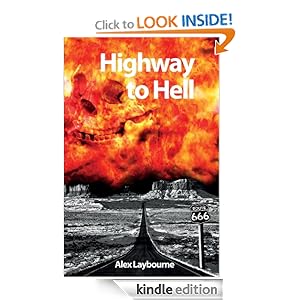


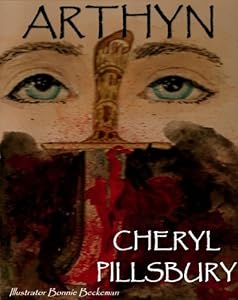
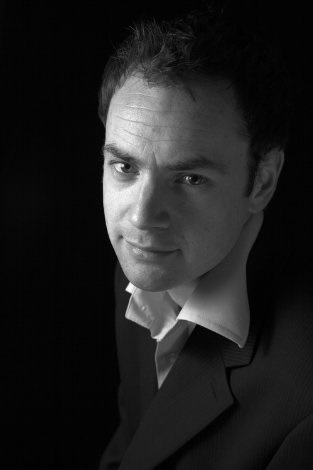
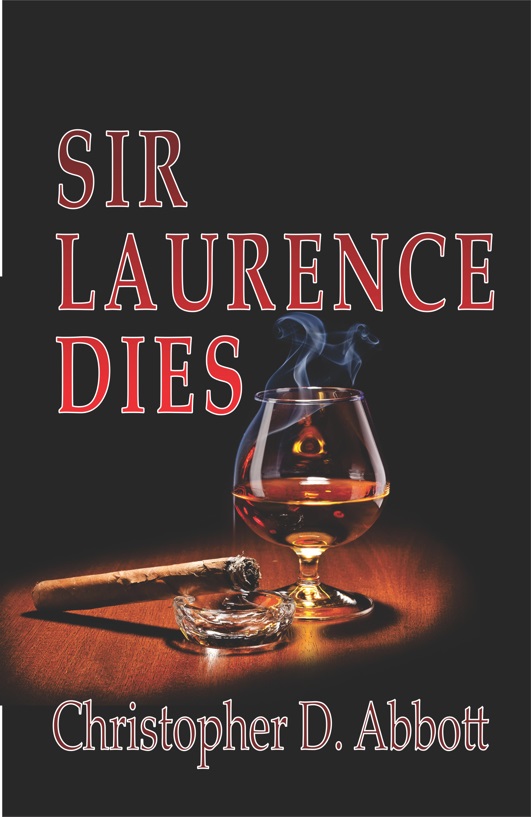

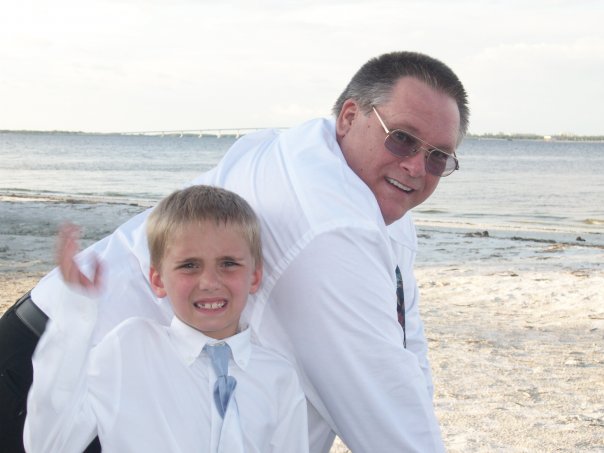





 J.R. McLemore is a writer who really has to be interviewed a few times to get the full breadth of his knowledge down in print. In this interview, I wanted to start with a question about the work he is doing currently, then I wanted to take you all on a rip-roaring journey through the highlights of being a professional writer. Hold on to your seats guys, this is going to be one helluva journey!
J.R. McLemore is a writer who really has to be interviewed a few times to get the full breadth of his knowledge down in print. In this interview, I wanted to start with a question about the work he is doing currently, then I wanted to take you all on a rip-roaring journey through the highlights of being a professional writer. Hold on to your seats guys, this is going to be one helluva journey!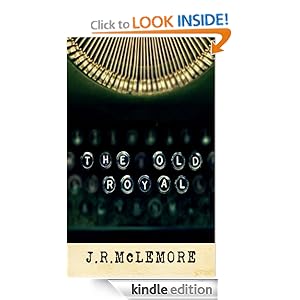
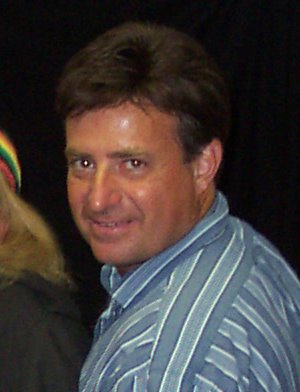


Recent Comments